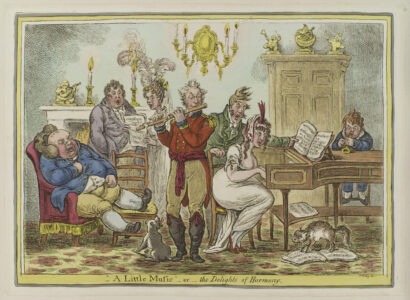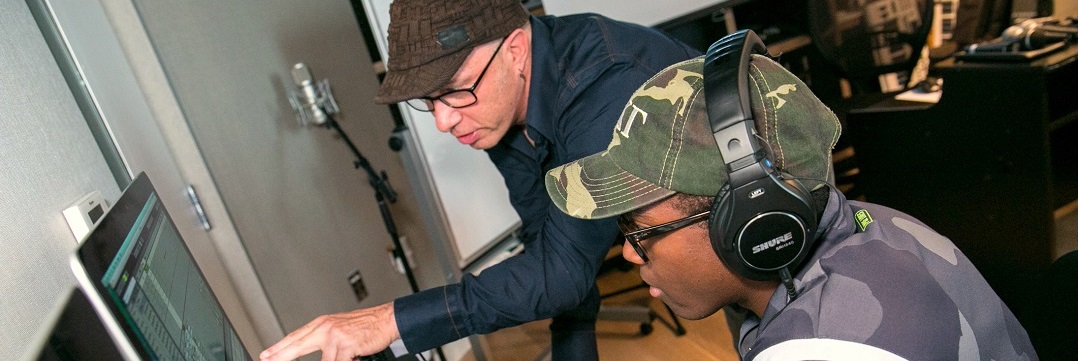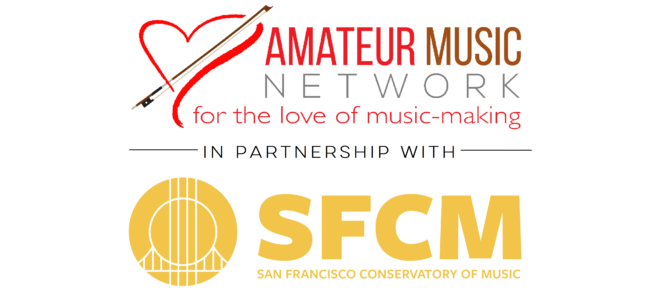Below is a guest contribution by violinist Joel Epstein, author of the new book Music for the Love of It: Episodes in Amateur Music-Making.

The illustration above is a cartoon by James Gilray from the late 18th century called “A Little Music, or the Delights of Harmony.” It illustrates one of the recurring themes of the book—that, while in society women may have been subordinate, in the music salon they were more than equals.
As an amateur violinist, I feel—and, I think, most of us feel—that I am carrying on a great tradition reaching back hundreds of years. A few things inspired me to explore that tradition, an exploration which eventually culminated in my book Music for the Love of It: Episodes in Amateur Music-Making.
The first thing that tickled my interest was the dedication on the title page of the Brahms string quartets opus 51: “To Theodor Billroth.” The name was vaguely familiar but I wasn’t sure who Theodor Billroth was. A quick check of Wikipedia revealed that he was a leading physician, an amateur violist, and an intimate friend of Brahms. In a used bookstore I found a collection of Billroth’s and Brahms’s correspondence, which provided a fascinating insight into the composer’s creative mind and the key role the amateur violist played.
The second thing was Cobbett’s Cyclopedic Survey of Chamber Music. This two-volume tome from 1929 I also found in a used bookshop. It is far more than an encyclopedia—it is one man’s personal encomium to the wonders of chamber music. The world of chamber music, Cobbett wrote, “…was an art for which I had a definite affinity. It is not an exaggeration to say that there opened out before me an enchanted world into which I longed to gain an entrance.” The encyclopedia was, like all encyclopedias, erudite, comprehensive, and written by leading experts in the field; on the other hand, it was filled with Cobbett’s own expressions, very personal and very eloquent, of his love for the glories of chamber music.
One thing led to another, and I found myself delving into other episodes of amateur music-making in history: the pivotal role of women in promoting amateur music in America; the brass band movement in Britain, which began as an attempt by moralists and by industrialists to use music to reform retrobates and to quell labor unrest in the coal mines and textile mills of Britain, and ended up as a mass musical movement that swept the country; the romance of Russian Jews of the early 20th century with the violin. In the end, it all started to fit together into a coherent story about the very tradition that we all feel to be our joyful duty to sustain.
The views and opinions expressed in this blog post are those of the author, and do not necessarily reflect the views or positions of AMN.





